Are home builders using the lvp laminate for main wood floor?
1sreynolds
5 years ago
Featured Answer
Comments (62)
mojomom
5 years agocpartist
5 years agoRelated Discussions
ugh, why is flooring SO hard? LVP/Laminate/Wood
Comments (10)We’ve chosen SuperCore, an SPC ( stone polymer composite) flooring for most of our home. We haven’t installed it yet, but I did order a full box, click it together and live on it for a few days in my kitchen. I love it. It has a rustic look with knots and graining and is not slippery. I have a 15 pound cat and he was playing on it with his flying feather toy and there were no scratches from his long claws. SuperCore is sold only online at WeShipFloors.com. You can order from them, and it is shipped to your home. It seems to be very DIY friendly. My husband and I are retired and plan to install ours. If you look at their website, there is some really good info about the stone composite floors and why they are preferable to WPC (wood polymer composite) flooring. The SPC, which has a limestone core, is more dimensionally stable and has better compression strength than the WPC which has a wood fiber core. The SPC is not affected by water. We decided on the SPC because we have several very heavy pieces of furniture, and the SPC will not be damaged by them. You will still need to put floor protectors on chairs and sofas to prevent scratching when moving them and have mats at your doors, but that would be the case with any flooring except maybe porcelain tile which is super hard and very hard on your feet, legs and back. When you go to their website, read SuperCORE 101. It has some good info. There is also a very long thread here on Houzz that has good info on SuperCORE —-Adura Max versus Coretec. It has some good photos of installs and reviews by actual homeowners. Good luck in your search. I’ve been looking at flooring for 14 months and am so happy I found the SuperCore....See MoreMain floor makeover, new to us home
Comments (17)I think white is the best base for a color scheme if you don’t have any furniture yet. You can always change it later. All whites have an undertone so it might depend on the furniture you pick. I love all your windows and right now you don’t have any color in the house so the white seems stark. It gives you a great neutral palette to start. Chalk painting your hutch would be fun and easy. It would update it. Pinterest is great for ideas. My daughter painted her oak cabinet Annie Sloan Paris gray and it looks like Restoration Hardware now. Then waxed it with white wax. Get some graph paper and figure out a floor plan. Decide where you want a sofa and chairs. I think you can keep whatever you have for now as a dining table. Go slow and step by step. It all seems overwhelming when you first move in. Your house is beautiful so enjoy the process....See MoreWill laminate wood flooring do this?
Comments (7)Number one: the first photo is shrinkage due to LOW humidity levels. The gap has opened up to SHOW YOU the innards of the wood floor. That's because wood SHRINKS when it gets TOO DRY and it 'puffs' when it gets damp/humid. We call this 'hydroscopic' (hydro = water; scopic = move). Winter is the SHRINKAGE time of year. The humidity in the air (outside) is low to begin with. Then the indoor HEATING cause the humidity to evaporate = gets drier still. Go ahead and measure the indoor humidity. We call this Relative Humidity (RH). Wood MUST HAVE RH 45% or so. If you cannot measure it purchase a hygrometer at home depot = $35. This is the PERFECT time to figure this stuff out. Are you building in the same area? Good! If the RENTAL has low humidity then your NEW HOME will have low humidity. Good! Now is the PERFECT TIME to PAY MORE for your HVAC system. Yep. Pay more. You will ADD IN a whole home humidity control system. You will pay a few thousand more for the upgrade to ensure you can add humidity at the touch of a button (we call this a Humidistat). If summer is SUPER HUMID then you need a DEHUMIDIFIER as well. If you get normal humidity (55% - 70%) in summer time then a regular A/C addition will do just fine for the summer humidity. If you are in NYC or Montreal, Toronto, Halifax, Baltimore, etc, you will need MORE than the A/C whole home unit to control humidity. Perfect. Now that you understand humidity, you can move on to what your new home can expect. Vinyl (LVP) loves a CONTROLLED home. It HATES temperature swings and humidity swings. It hates direct sunlight. Which means you need to look at your WINDOWS. You want to ensure you windows have UV protection on them...I like to see 55 - 70% UV block. That is enough to keep vinyl happy. If not, you might get floors that warp and separate. Now...onto laminate. It has the same 'hate' for humidity issues as wood and vinyl. It still needs humidity control. But...it is better equipped to deal with it. It doesn't care about direct sunlight. But laminate cannot be used in kitchens NOR bathrooms nor entranceways that are 'wet'. You are welcome to use laminate throughout your home...but you will want SOMETHING ELSE in kitchens, baths and entrances. There you have it. Vinyl (petroleum product that warps with heat/sunlight) and laminate (puffs when it gets wet) in a nut shell....See MoreDoes a laminate wood plank work next to oak wood flooring?
Comments (12)@Vicki Baldwin maybe the decision to use the well matching laminate vs same wood as on upper floor should be based on cost? Assuming the laminate has good reviews on durabilty, the differences between the two types might come down to resistance to damage from scratching - dog claws & normal use - and the repairability. The wood floor can likley be refinished & the laminate floor could have planks replaced - assuming extra planks of same floor obtained at time of install. As for appearance differences, looks like enough separation between the two spaces to be a non issue with such a good match. Having area rugs & furniture in place minimizes the comparison for everyone but you! Replacing a floor is not an inexpensive project so I can appreciate your thought process with it....See MoreElaine Roberts Drafters & Designers
5 years agorobin0919
5 years agoJoe T.
5 years agowhaas_5a
5 years agolast modified: 5 years agoUser
5 years agolast modified: 5 years agowhaas_5a
5 years agolast modified: 5 years agoSuru
5 years agoAlexandra Nickson
5 years agoUser
5 years agolast modified: 5 years agoJordyn Spann
5 years agoUser
5 years agoAlexandra Nickson
5 years agoJordyn Spann
5 years agosprink1es
5 years agowhaas_5a
5 years agoBri Bosh
5 years agoML Swartz
5 years agorobin0919
5 years agoqueenvictorian
5 years agorobin0919
5 years agoV M
4 years agolast modified: 4 years agoflashpolkadot
4 years agoOak & Broad
4 years agoV M
4 years agoOak & Broad
4 years agoflashpolkadot
4 years agoOak & Broad
4 years agoSuzanne
4 years agoD N
4 years agoSuzanne
4 years agoOne Devoted Dame
3 years agolast modified: 3 years agojddeppe
3 years agoSasha Liles
3 years agolast modified: 3 years agoDean E
3 years agolast modified: 3 years agoOne Devoted Dame
3 years agoDean E
3 years agoOne Devoted Dame
3 years agoDean E
3 years agolast modified: 3 years agoAshley Lee
3 years agoanthra
3 years agoworthy
3 years agolast modified: 3 years agoTrish Walter
3 years agolast modified: 3 years agoV M
3 years agoSasha Liles
3 years agoSasha Liles
3 years agoML Swartz
3 years agoJennifer P
3 years ago
Related Stories
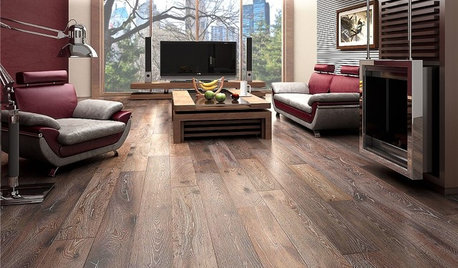
REMODELING GUIDESWhen to Use Engineered Wood Floors
See why an engineered wood floor could be your best choice (and no one will know but you)
Full Story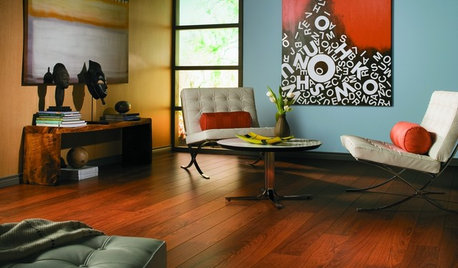
REMODELING GUIDESLaminate Floors: Get the Look of Wood (and More) for Less
See what goes into laminate flooring and why you just might want to choose it
Full Story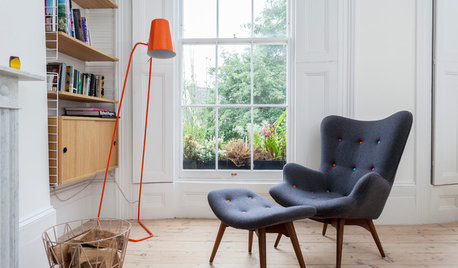
FLOORS10 Ways to Make the Most of Your Home’s Original Floors
Save yourself the cost of replacing your old floorboards with these tips for a new finish
Full Story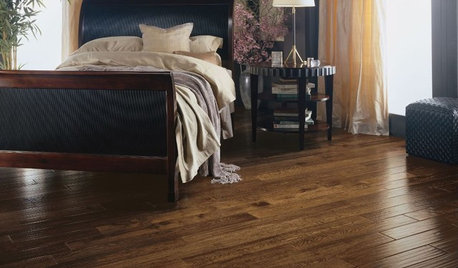
REMODELING GUIDESYour Floor: An Introduction to Solid-Plank Wood Floors
Get the Pros and Cons of Oak, Ash, Pine, Maple and Solid Bamboo
Full Story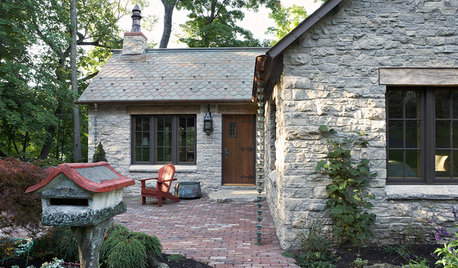
GREEN BUILDINGHouzz Call: What Have You Salvaged for Home Use?
If your floors, furniture, exterior materials or other home elements have a past life, we'd like to hear the story
Full Story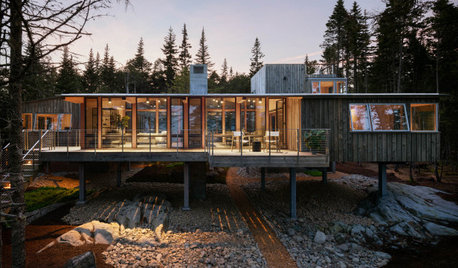
HOUZZ TOURSA Modern Wood-and-Concrete Cabin in Coastal Maine
Light-filled interiors and rugged nature views create a unique summer vacation home
Full Story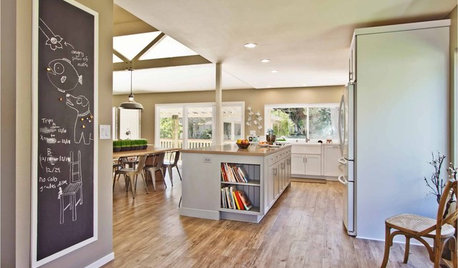
FLOORSWhat's the Right Wood Floor Installation for You?
Straight, diagonal, chevron, parquet and more. See which floor design is best for your space
Full Story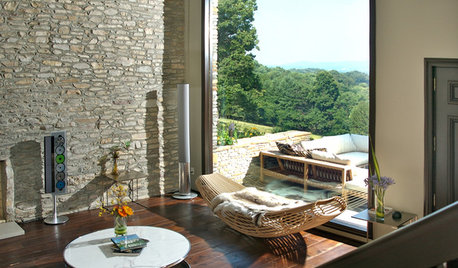
REMODELING GUIDESYour Floors: Zebra, Tiger, and Teak Wood, Oh, My!
Get the Pros and Cons of Exotic Woods: Hickory, Cherry, Rosewood and More
Full Story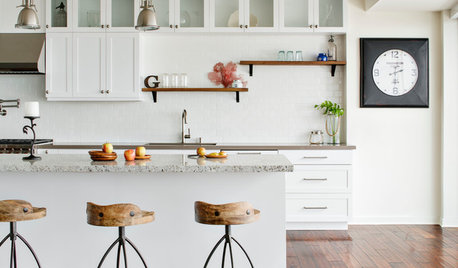
REMODELING GUIDESWhat to Know About Engineered Wood Floors
Engineered wood flooring offers classic looks and durability. It can work with a range of subfloors, including concrete
Full Story


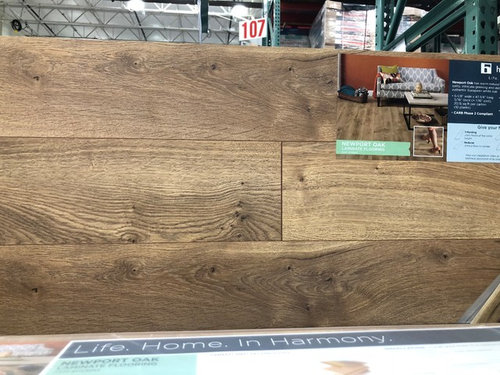
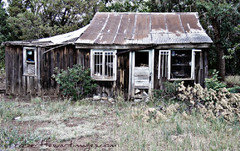
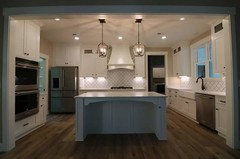
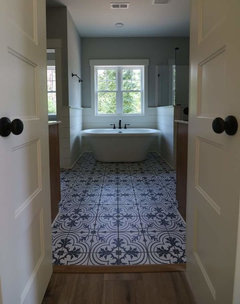
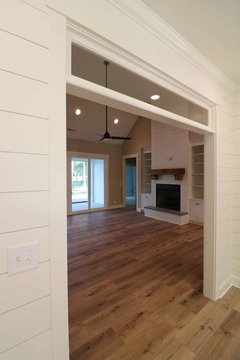
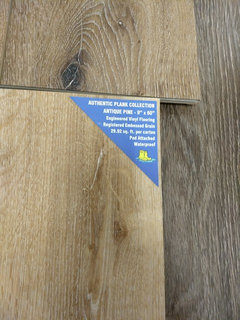
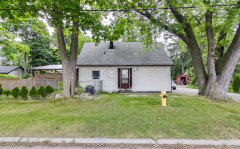
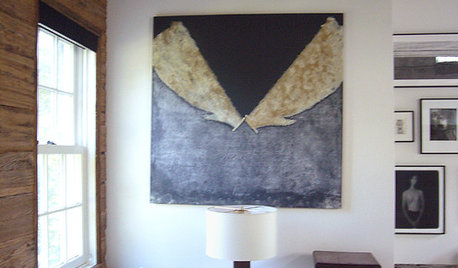


Joe T.